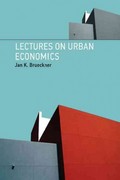Question
Two states, A and B, are involved in a potential military conflict. State B's strength is common knowledge, but state A's is not. A is
Two states, A and B, are involved in a potential military conflict. State B's strength is common knowledge, but state A's is not. A is Strong with probability p = .5 or Weak with probability 1 p = .5. The interaction unfolds as follows: first Nature draw's A's strength and reveals it to A. Then A decides whether to challenge B or not. B observes the challenge (if any), and then decides whether to fight or back down.
If A does not challenge, the game ends, and each state earns a payoff of 0.
- If A challenges and B fights, there is a war. The winner of the war earns a payoff of 1 c, and the loser earns 1 c, where 1/2 < c < 1. If A is Strong, it wins the war with probability = .75 and B wins with probability 1 = .25. If A is Weak, it wins with probability 1 = .25, and B wins with probability .75.
- If A challenges and B backs down, A earns 1/2 and B earns 1/2.
(a)What are the information sets of state A? What are A's pure strategies? Answer the same questions for state B.
(b)Suppose A's strategy is "Challenge if Strong, Do not challenge if Weak." What is B's belief of A's strength after being challenged? Given this belief, what is B's expected utility of Fighting? Of backing down? What is B's best response?
(c)Is there a perfect Bayesian equilibrium in which A uses the strat- egy specified in the previous part? Hint. Consider whether the Weak type of State A actually prefers not to challenge, given the best response of B to challenge specified above.
(d)Suppose A's strategy is "Do not challenge if Strong or Weak." Suppose B believes that if A does challenge (which is off the path of play for this strategy), A is strong with probability .5. What is B's best response to a challenge?
(e)Is there a PBE in which A uses the strategy and B holds the off-path beliefs specified in the previous part?
(f)Suppose A's strategy is "Challenge if Strong or Weak." Is this a PBE?
(g) Can there be a PBE in which the Weak type of A is more likely to challenge than the Strong type of A?
Step by Step Solution
There are 3 Steps involved in it
Step: 1

Get Instant Access to Expert-Tailored Solutions
See step-by-step solutions with expert insights and AI powered tools for academic success
Step: 2

Step: 3

Ace Your Homework with AI
Get the answers you need in no time with our AI-driven, step-by-step assistance
Get Started


